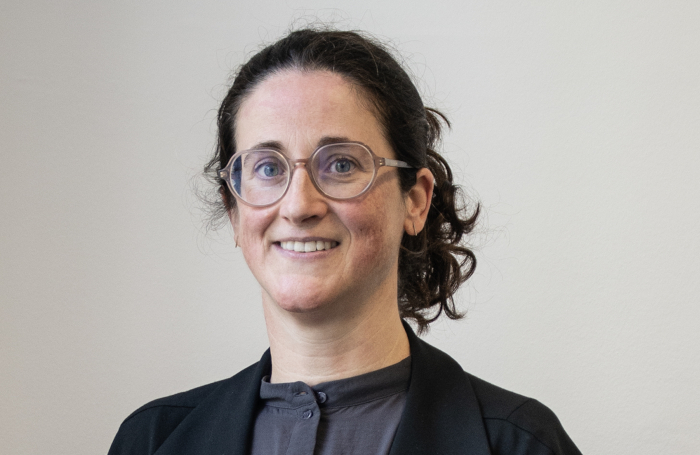RIBA Research Fund
The RIBA Research Fund awards annual grants to individuals conducting independent architectural research at any stage of their careers in practice or academia. The aim is to support critical investigation into a wide range of subject matters relevant to the advancement of architecture, and connected arts and sciences, in the United Kingdom.
Eligibility
We welcome applications to support all research topics as long as the subject matter and final outputs are relevant to the advancement of architecture and associated disciplines and professions. Applications are welcome from individuals or teams from architectural practices and academia at any stage of their research careers.
Grants are made to individuals and not to commercial businesses or to higher education institutions. The fund does not support course fees, expenses, and subsistence costs for those enrolled in PhD/MPhil or Masters programmes.
Applicants should be primarily based in the UK.
The maximum amount that applicants can apply for is £12,000.
Assessment and selection
Applications are assessed by the RIBA Research Development Group, a working group that comprises members of the RIBA Council, the RIBA Education Development Group, and other individuals co-opted for their expertise.
The following criteria will be used to select the grant recipient(s):
- clear demonstration of the originality and importance of the research topic
- evidence that the proposal is generally feasible and well planned, with consideration of how to mitigate risks and address eventual challenges
- defined, measurable, and suitable outputs for the research proposal, e.g., a journal article, an exhibition, etc.
- well-thought through and detailed financial expenditure forecast
Consideration will also be given to how the project aligns with one or more of the four Mandatory Competences detailed in the RIBA Education and Professional Development Framework: Health and Life Safety, Ethical Practice, Climate Literacy, and Research Literacy.
Applying
The 2025 application cycle is now closed. The next application cycle will open in the spring of 2026. For more information on the criteria and application process, please read the Research Fund Guidance Notes (PDF) for the 2025 application cycle.
If you have any questions about the RIBA Research Fund, please email research.funding@riba.org.
2025 recipients
We are pleased to announce the recipients of the 2025 RIBA Research Fund:
Matthew Bell - Grow your own hemp home (awarded £7,500)
This research will explore the potential for architectural materials to be cultivated on-site, enabling buildings to be literally grown rather than built from industrially processed materials. The ambition is to significantly reduce embodied carbon in construction, while maintaining essential performance standards such as insulation, breathability, and longevity.

Johnathan Djabarouti - Designing with the Intangible: Tools for Contemporary Architectural Heritage Practice (awarded £7,300)
By asking two questions - "What are the practical barriers and enablers that shape how architects engage with intangible heritage in historic settings (buildings, sites, and places)?" and "What tools and frameworks could support to do so with greater confidence and rigour?" - this research aims address a critical gap in UK architectural practice: how can architects engage with intangible cultural heritage in the design and conservation of historic buildings?

Luke Macnab, Michael Lewis, Penny Hay, Laurent Koenig and Lua Koenig: The Spatial Diet: An Architectural Framework for Creative Flourishing (awarded £7,125)
This research seeks to define the conditions that help individuals and groups creatively flourish with the proposition of a new architectural framework for understanding how spatial environments influence creative thinking and cognitive renewal. Drawing from neuroscience, design theory and participatory practice, the project will introduce the metaphor of a 'spatial diet', a way of classifying and combining architectural 'ingredients' such as enclosure, light modulation, materiality and acoustic tone, to support a healthy balance between convergent (focused) and divergent (imaginative) modes of thought.

Carla Molinari - Architectural Media and the Gendered Gaze: Women in The Architectural Review, 1935–1951 (awarded £3,326)
This study of The Architectural Review between 1935 and 1951 aims to illuminate the hidden contributions of women, question long-standing narratives of architectural history and offer a richer understanding of how professional media shaped gendered identities within the built environment. The journal’s role in constructing gender narratives remains largely overlooked and the project seeks to redress this imbalance by exploring both the contributions of women to the journal and the ways in which women were portrayed across its editorial, visual, and advertising content.

Clara Oloriz Sanjuan - Landed Community Kitchens: Architectures for Just Climate, Care and Food Systems (awarded £7,500)
This research aims to engage architects in Landed Community Kitchen co-design to amplify community agency through spatial and material intelligence. It investigates how architectural systems and typological thinking can connect and scale LCKs through knowledge, research and advocacy support while exploring their potential to rethink urban and landscape design from a social reproduction and food systems perspective.
Dr Hossein Sadri, Dr Senem Zeybekoglu and Sebastian Hicks - To Build is to Become: Co-Creating the Self, the Earth, and Kinship (awarded £7,500)
Centring on the transformation that occurs in those who build, this research intends to explore building as an existential, communal, ecological, and relational process. Drawing on Indigenous worldviews and regenerative philosophies, the project will approach building as a radically inclusive act of cocreation, enabling humans to reconnect with their inner selves, each other, their land, other beings and the Earth as a shared home.
Applications were assessed by the RIBA Research Development Group.








